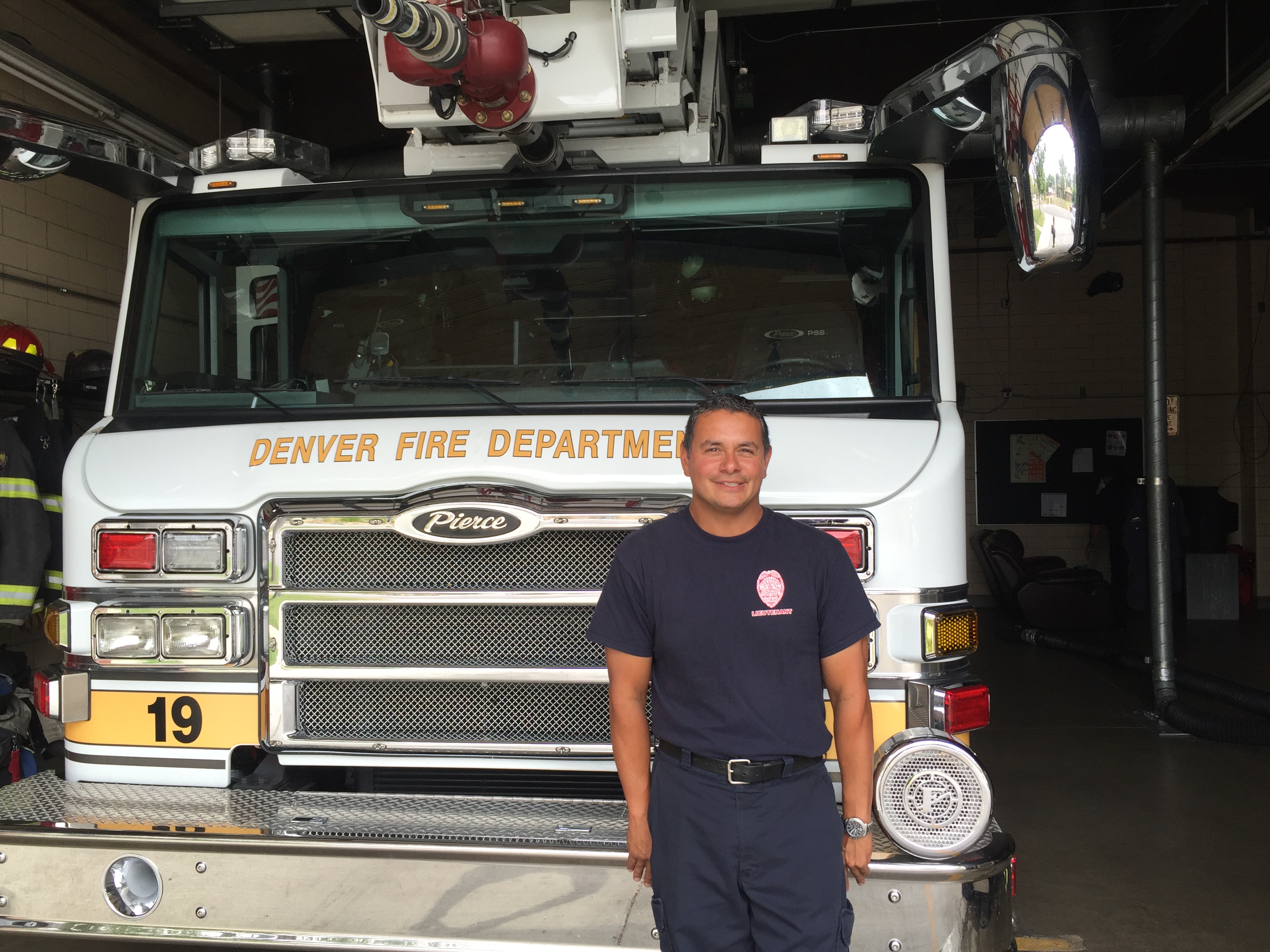DENVER -- Suicide prevention is usually not mentioned in an employee handbook or in regular workplace meetings.
However, the Denver Fire Department has made it a priority. "It's OK to talk about these things," Denver Fire Chief Eric Tade said. "There is no need to internalize them."
Chief Tade has worked at Denver Fire for more than 20 years. He can recall several suicides within the department.
However, it was the loss of one department veteran in February 2013 which prompted change.
Chief Tade refers to Captain Steve Magana as the "firefighter's firefighter" who embraced his job wholeheartedly over his 30 years with the department.
Lt. Juan Vigil spent 15 years working alongside Captain Magana at Station 19 in Denver's Hilltop neighborhood.
"I would never have thought that would happen to him," Lt. Vigil said.
Vigil and Magana became good friends and spent time outside of work hunting and fishing together."
"As a team here, it was tough," Lt. Vigil said. "Probably the hardest thing we've had to deal with inside the firehouse ... For sure for me."
Captain Magana's death rattled the entire department, and the call for change started with a meeting with the Carson J. Spencer Foundation.
Spencer-Thomas founded the suicide awareness and prevention foundation in 2005 after the death of her brother, Carson.
"They kind of made a commitment to one another that they weren't going to stop until they got some tools, some resources, some answers," Sally Spencer-Thomas said.
"When Carson was struggling, he did not have tools like man therapy. He did not have mentors like the Denver firefighters to say, 'It's OK, man. We'll stand with you. We'll get you through this.'"
Spencer-Thomas is focused on addressing stress and its effect on mental health as well as offering tools to help those who are struggling to cope.
She speaks throughout the country to mental-health groups and most recently did a tour of college campuses.
The Carson J. Spencer Foundation is very focused on working with male-dominated businesses like the Denver Fire Department. Of the roughly 1,000 employees, there are only about 50 women in the department.
"Eighty percent of people who die by suicide are men," Spencer-Thomas said. "Just the fact that they are a male-dominated workforce creates the risk."
Spencer-Thomas also points to the trauma firefighters see daily on the job.
"We respond to fires, but also suicides, gunshot wounds, traumatic injuries within auto accidents," Lt. Vigil said. "A lot of times, we'll see children badly injured -- things that the average person is not going to see."
Because firefighters repeatedly see those kinds of situations, they develop what Spencer-Thomas calls, "acquired capacity."
"Those situations can make them unafraid of violence or self-injury," Spencer-Thomas said. "They can develop fearlessness around suicide because of their exposure to life-and-death situations."
However, there is one suicide risk factor that firefighters face more than any other: the need to be tough and strong.
"I know for myself and for a lot of the fire service, we try to just file it away and not let it affect us, try to have that hard exterior," Chief Tade said.
Lt. Vigil agrees with the chief, but they've both changed the way they think.
"We can't keep dealing with things the same way we have in the past, which is ignoring it, rub some dirt on it and you'll be fine tomorrow," Lt. Vigil said.
After some initial resistance to talking about suicide in regular meetings and in classes at the academy level, Denver firefighters are embracing the program.
Mental health is now just as important as physical health in the department's total wellness program.
"We want them to come in and be, 'Wow, it's just as normal to talk about this at the kitchen table as it is to talk about the great CrossFit workout we just had,'" DFD Chief Tade said.
The National Firefighters Chiefs Conference is coming up in Keystone in October.
A team from the Denver Fire Department is going to talk about how suicide prevention has become a big part of the department's total wellness program.
The DFD team will talk with other firefighters from all over Colorado on ways to get a program going in their departments.
"As long as we can see into the future, it will be part of our training," Chief Tade said.
As for Lt. Vigil, who oversees several different firehouses, including his former Station 19, he says he's now an "open book."
"Captain Magana's suicide broke the heart of many of us, but that has also made us much stronger," Lt. Vigil said.
The Carson J. Spencer Foundation has also worked with the local branch of RK Mechanicals.
Being a construction company, it too is a male-dominated business. Workers face injuries from the laborious work, which can be seasonal and therefore pose a financial worry.
RK launched its Man Therapy program in 2014 with the slogan: "you can't fix your mental health with duct tape." There are slices of duct tape with those words on the hard hats worn at job sites.
RK has "toolbox talks" with construction workers at job sites, and select managers undergo suicide prevention training.
RK also has mental health support resources available through the company's wellness program as well as a wellness coach who provides one-on-one counseling.
RK worked with the Carson J. Spencer Foundation to develop the "Construction Industry Blueprint" for all companies and workers in the field.
Spencer-Thomas says she is also working on a program that could assist male entrepreneurs who work tirelessly to get businesses started and sustainable.
For more on the suicide awareness prevention and work of the Carson J. Spencer Foundation, go to http://www.carsonjspencer.org/.
If you or someone you know is having suicidal thoughts, there is help 24-7 at the National Suicide Prevention Lifeline (http://www.suicidepreventionlifeline.org). Call 1-800-273-TALK (8255).
(© 2015 KUSA)


